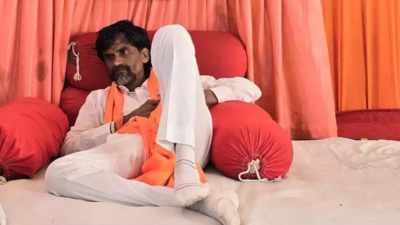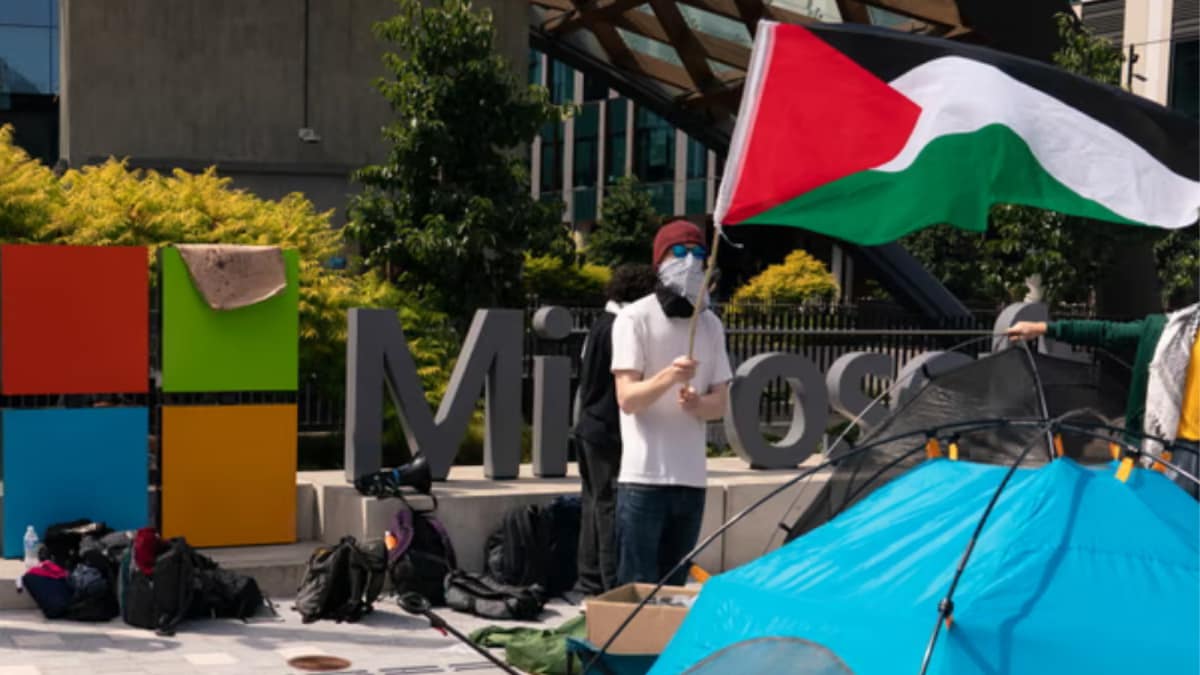ARTICLE AD BOX

Manoj Jarange, a farmer's son from Maharashtra, has emerged as the face of the Maratha reservation agitation. He initiated his seventh indefinite fast in Mumbai, demanding a 10% quota for Marathas under the OBC category by recognizing all Marathas as Kunbis.
NEW DELHI: Coming from a humble farming family in Maharashtra’s Beed district, 43-year-old Manoj Jarange has travelled a long way, from working in a hotel and a sugar factory to becoming the most prominent face of the Maratha reservation agitation.On Friday, Jarange launched yet another indefinite fast, his seventh since 2023, at Mumbai’s Azad Maidan, calling it the community’s “final fight” for reservation. Thousands of Marathas gathered at the protest site, treating him as a hero and symbol of their cause.Jarange’s previous agitations have already forced ruling parties and successive governments to engage with him, fearing a political backlash.
Always dressed in white and draped in a saffron scarf, the lanky activist’s aggressive posturing and defiance of political heavyweights have made parties wary.
Humble beginnings
Jarange hails from Matori, a small village in Beed. After completing school there, he moved to Shahgad in Jalna district’s Ambad tehsil, where he worked in a hotel and later in a sugar factory. His wife and children continue to live in Shahgad, while his parents Raosaheb and Prabhabai, and elder brothers Jagannath and Kakasaheb, reside in Matori and work as farmers.“Jarange always came from an average-income household but encouraged others to work for the community,” said his relative, Anil Maharaj Jarange.
Political journey
According to journalist Rajendra Kale, Jarange entered politics through the Congress, briefly serving as district Youth Congress president around 2000. However, ideological differences saw him quit the party and turn to activism.In 2011, he founded his own outfit, Shivba Sanghatana. Prof Chandrakant Bharat, coordinator of the Maratha Kranti Morcha (MKM), said Jarange played a key role in mobilising Marathas during the massive quota marches of 2016.
Earlier, in 2013, he had agitated for the release of water from Jayakwadi dam for Jalna farmers.He also fought for compensation for families of those killed during previous Maratha quota protests.
The turning point in 2023
Jarange was little known until August 29, 2023, when he began an indefinite hunger strike at his Antarwali Sarati village in Jalna. Initially, it went largely unnoticed. But three days later, when police tried to forcibly hospitalise him, violence erupted.Protesters clashed with police, who resorted to baton charges and tear gas. At least 40 police personnel were injured, over 15 state transport buses torched, and dozens of civilians hurt. The incident catapulted Jarange into prominence and forced the Eknath Shinde-led government to re-engage with the Maratha quota issue.The opposition targeted then-deputy CM Devendra Fadnavis, who held the home portfolio, demanding his resignation over the police action.
The demand
Jarange is demanding a 10% quota for Marathas under the OBC category by recognising all Marathas as Kunbis — an agrarian caste already classified as OBC. This, he insists, would make the entire community eligible for reservation in jobs and education.



.png)
.png)
.png)
















 5 hours ago
3
5 hours ago
3








 English (US) ·
English (US) ·